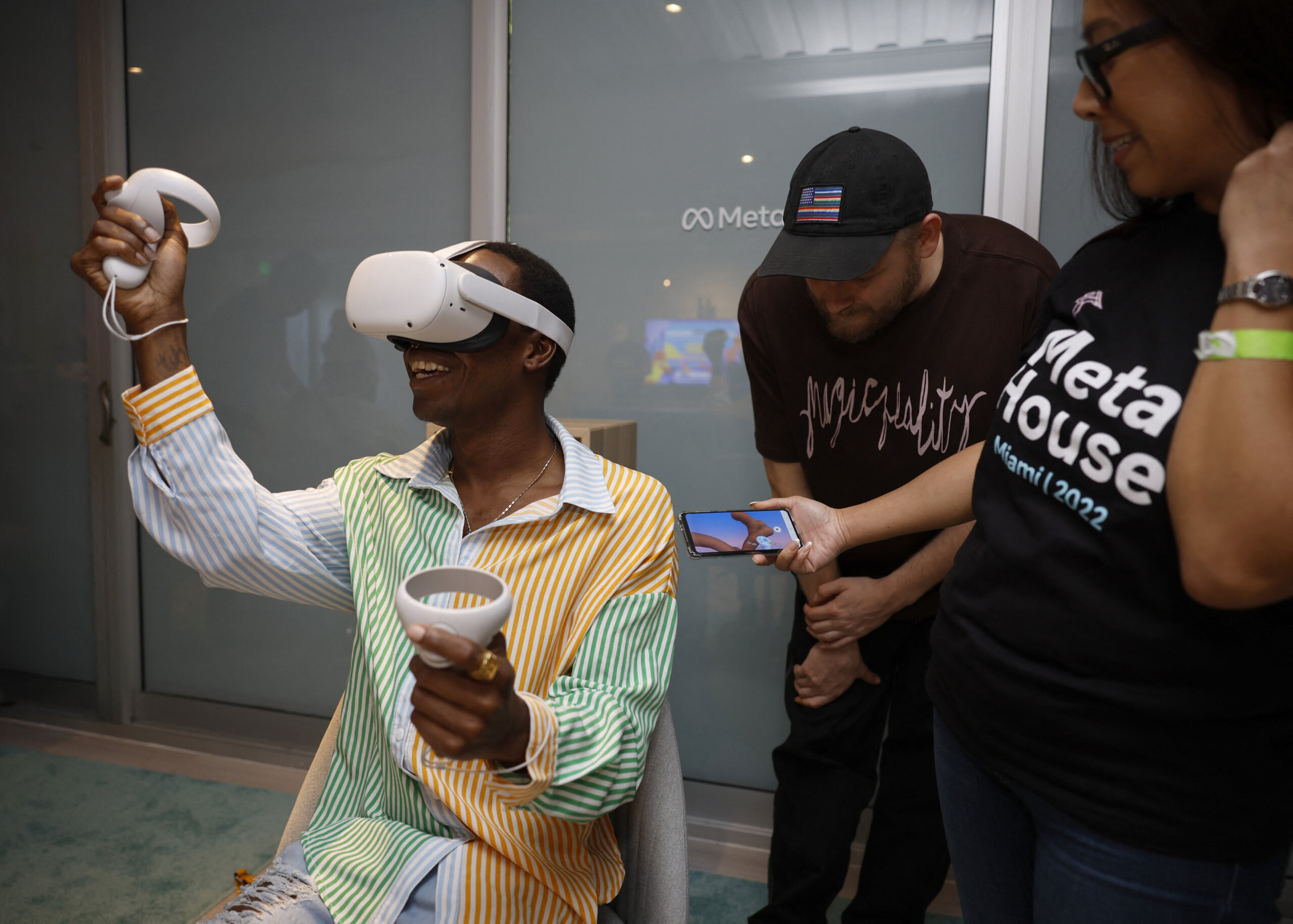
Meta: Metaverse technology is shaping the future of work. Here’s how(Photo by TASOS KATOPODIS / GETTY IMAGES NORTH AMERICA / Getty Images via AFP)
- Meta’s recently concluded Future of Work Summit in Washington centered around how the metaverse as a technology can transform learning and how people train for jobs.
- Meta sees immersive technologies like VR and AR as accelerating vocational training and opening new career pathways.
Global interest in the metaverse as a prevailing technology has been fading, still, Meta Platforms Inc. is not giving up on something they have been banking on firmly over the last year. The company’s “Future of Work Summit” in Washington proved how the social media giant isn’t backing down on its virtual reality ambitions even as artificial intelligence takes center stage.
In fact, Meta’s president of global affairs, Nick Clegg, during the summit, revealed the company’s hope to revive interest in the metaverse by pitching it as a tool to help train workforces. Clegg even predicted that in 10-15 years, the metaverse would become sufficiently mature, affordable, and accessible to enjoy wide prevalence in society.
He took the opportunity to highlight the mutually reinforcing relationship between AI and the metaverse, saying, “One entirely reinforces the other. It’s impossible to imagine people enjoying the metaverse in the future without generative AI.”
Clegg’s iteration came after Meta’s CEO, Mark Zuckerberg, endorsed AI as a driving force behind Meta’s revenue growth last quarter after nearly a year of dismal financial performance.
“Our AI work is driving good results across our apps and business,” Zuckerberg said in a statement last month at the time of the earnings release.
At this point, the entire team of Meta has admitted that despite the newfound attention on AI, the company isn’t any less committed to their larger metaverse bet. In fact, before Clegg, Zuckerberg argued that AI is foundational to the metaverse and will be a critical tool in creating more dynamic and accessible virtual reality-powered experiences.
No doubt, though, that on the research front Meta has long been a player in the AI field. The company’s laboratory stands out in the industry for publicly releasing much of its research. At this point, it’s also clear that the company isn’t backing down from its metaverse drive.
Clegg even highlighted that the changing hype cycle is helping the company’s metaverse goals, not replacing them. “We can do both. It’s not a tradeoff,” he said. “One entirely reinforces the other. It’s impossible to imagine people enjoying the metaverse in the future without generative AI,” Clegg added, giving an example about shortening the time to build a virtual world using a simple verbal prompt.
How can the metaverse, as a technology, shape the future of work?
With the advent of AI sparking global concerns about job displacement, Clegg positioned Meta as an advocate for technology that creates more employment opportunities rather than replacing jobs. The social media giant also welcomes the recent introduction of the Immersive Technology for the American Workforce Act in the US, with Clegg highlighting the importance of establishing guidelines through proactive rather than reactive legislation.
“The metaverse promises to make learning more active,” said Clegg. “With VR and AR technologies, people can learn by doing, not just passively absorbing information. This can potentially transform how we provide new skills and lifelong learning tools for people in the future.”
There are five examples Meta gave on how the metaverse technology is shaping the future of work today:
Reducing risk for dangerous jobs
Giving electricians as an example, Meta highlighted how, with VR training modules in platforms such as Interplay, an electrical apprentice can practice using virtual live wires hundreds of times without risking physical injury.
This is mainly for electricians that often work on dangerous power lines and complex machinery, requiring experience and expertise. Citing a recent whitepaper by ITIF, Meta also said immersive technologies could be incredibly impactful in training programs that require a mix of theoretical and practical experience.
Implementing AR- and VR-based instruction could make the programs more cost-effective, flexible, and safe while extending their coverage.
Increasing caregiver retention
Meta shared how Embodied Labs developed an immersive training platform to bridge a gap between caregivers and those they serve. “Her platform enables caregivers to simulate cognitive, auditory, or vision loss with the help of virtual reality,” Meta said.
The social media giant also noted how training in VR is four-and-a-half times more effective than e-learning or classroom learning and can lead to a 275% increase in confidence on the job after training.
New pathway for jobs
According to a new report by Jobs for the Future, careers in extended reality (XR) are more accessible to people who don’t have college degrees or are searching for new jobs. In the same report, JFF found that 40% of the more than 40,000 job postings mentioning XR or similar technology required only a high school or associate degree to be considered or had no education requirements.
“These findings suggest that people who have been excluded or underrepresented in the technology sector because of education attainment barriers will soon be able to access, enter and advance through immersive technologies more easily,” said Alex Swartsel, managing director of Jobs for the future.
“For example, a learner can begin in an entry-level role such as XR technical support specialist and then up-skill to specialize for roles such as virtual-world design, sales, or consulting on immersive solutions for business needs.”
In the US alone, the metaverse could contribute between US$402 billion and US$760 billion by 2035, according to a report commissioned by Meta and produced by Deloitte. “The metaverse is making its way into our economy and culture, and preparing for it now will help make a small business more competitive both in the short and long term,” said Karen Kerrigan, founder of the Metaverse Business Alliance.

















